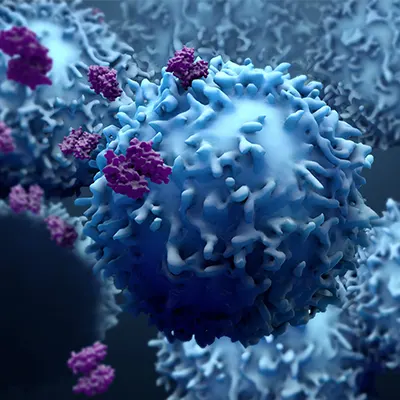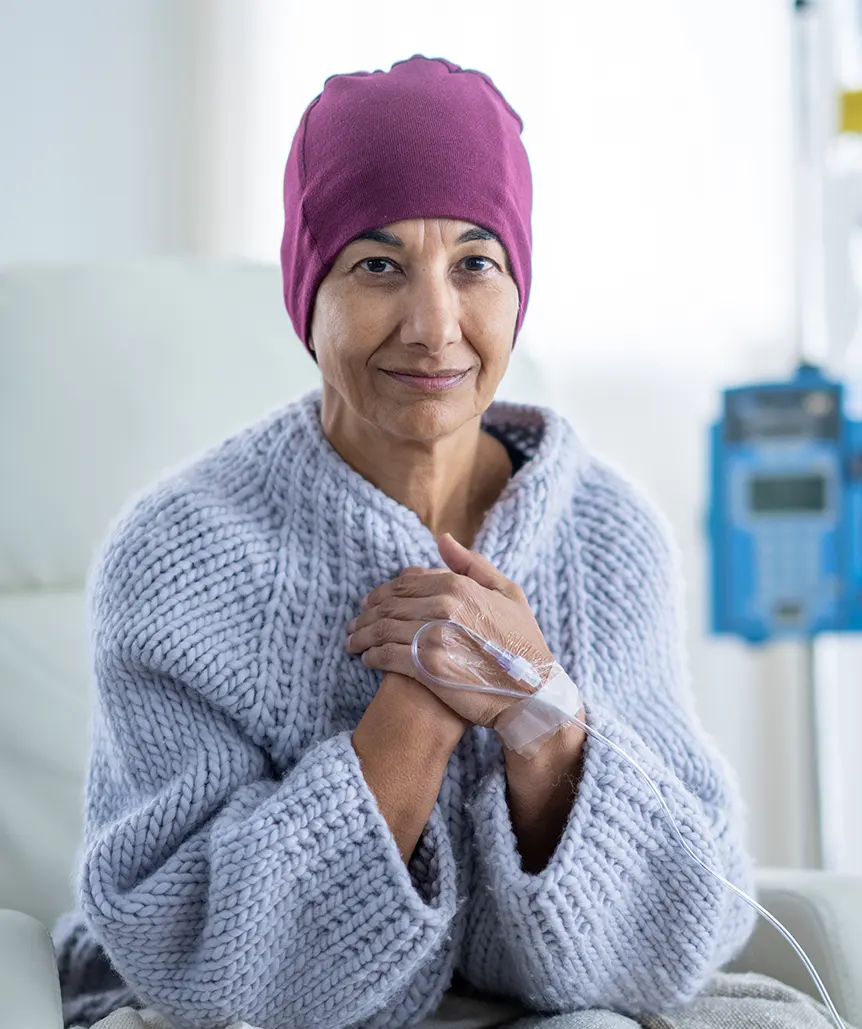Dr. Ambarish Chatterjee
- MBBS, MS - General Surgery, MCh - Surgical Oncology, DNB - General Surgery, DNB - Surgical Oncology

Surgical Oncology is a subspecialty of surgery that deals with the diagnosis and treatment of cancer using surgical techniques. Surgical Oncologists are specialists in the surgical management of cancer patients, and they work in collaboration with other specialists like medical oncologists, radiation oncologists, and pathologists to provide comprehensive care for patients with cancer. Surgical Oncology is a dynamic field that is constantly evolving with new techniques and technologies. Surgical Oncologists at SRV Hospitals, use a variety of surgical techniques to diagnose and treat cancer, including traditional open surgery, laparoscopic surgery, and robotic surgery. They also provide specialized services such as sentinel lymph node biopsy, which is used to determine if cancer has spread to the lymph nodes, and breast-conserving surgery, which preserves as much of the breast tissue as possible while removing the cancer. In addition to treating cancer, Surgical Oncologists also play a critical role in the management of cancer patients by providing education, counseling, and emotional support to patients and their families.
Surgical oncology is a specialized field of surgery that deals with the surgical treatment of cancer. Some of the oncologic conditions that may require surgery include:
Surgical oncologists perform surgery to remove solid tumors, including those in the breast, lung, colon, prostate, and other organs.
Surgical oncologists may perform biopsies or other diagnostic procedures to determine the extent and stage of the cancer.
In some cases, surgical oncologists may perform prophylactic (preventive) surgery to remove tissue or organs at high risk for developing cancer, such as in the case of prophylactic mastectomy for women with a high risk of breast cancer.
Surgical oncologists may also perform palliative surgery to relieve symptoms or improve quality of life for people with advanced cancer.
Surgical oncologists may be needed to treat rare or complex cancers that require specialized surgical techniques, such as pancreatic cancer or mesothelioma.
Surgical oncology is an important part of cancer treatment, and surgery is often used in combination with other treatments, such as chemotherapy or radiation therapy, to manage cancer and improve outcomes. Your healthcare team, including your oncologist and surgeon, can help determine the best treatment plan for your individual situation.

The symptoms of cancer can vary depending on the type and stage of the cancer. Some common symptoms include:
It’s important to note that these symptoms can also be caused by other medical conditions, so it’s crucial to get a proper diagnosis from a healthcare professional.
Surgical oncology is a subspecialty of surgery that focuses on the surgical treatment of cancer. The treatment options for surgical oncology will depend on the type and stage of the cancer, as well as the patient’s overall health and preferences.
Surgery is the most common treatment for solid tumors and is often the primary treatment for many types of cancer.Some examples of surgical procedures used to treat cancer include:
Lumpectomy: This involves removing the cancerous tumor and a small amount of surrounding tissue.
Mastectomy: This involves removing the entire breast that has the cancer.
Whipple procedure: This is a complex surgery used to treat pancreatic cancer, it involves removal of the head of the pancreas, part of the stomach, and the small intestine.
Prostatectomy: This is a surgery to remove the prostate gland, it can be done as an open surgery or laparoscopically.
Cytoreductive surgery: This is a complex surgery used to treat advanced cancer, it involves removal of as much of the cancer as possible, followed by chemotherapy or hyperthermic intraperitoneal chemotherapy (HIPEC)
Minimally invasive surgery: With this technique, smaller incisions are made, and the surgery is performed using specialized instruments and a camera. It can be used for many types of cancer.
Robotic surgery: This type of surgery uses robotic technology to assist the surgeon in performing the procedure. It can be used for many types of cancer, and it may allow for more precise and less invasive surgery.
Neurosurgery: This involves surgery of the brain and spinal cord, and is used to treat tumors in those areas.
Reconstructive surgery: This type of surgery is used to rebuild or restore the appearance and function of the body part that was removed during the cancer surgery.
It is important to note that the treatment options and the order of treatment will depend on the individual case, the stage of the cancer, and the patient’s preferences. A team of medical professionals, including a surgical oncologist, a medical oncologist, a radiation oncologist, and a nurse navigator, will work together to develop a personalized treatment plan. It is also important to note that the patient should also consider participation in clinical trials as they offer access to new and innovative treatment options, which are not yet widely available.


Surgical oncology is used to treat a wide range of cancers, including breast cancer, colon cancer, lung cancer, ovarian cancer, and many others. The specific type of cancer and the stage of the cancer will determine the appropriate surgical approach.
Surgical oncology offers several benefits, including the ability to remove the cancerous tissue, which can improve the chances of recovery and survival. Surgery can also help to diagnose cancer, as well as determine the stage of the cancer. In addition, surgery can also be used to relieve symptoms caused by the cancer, such as pain or obstruction.
Our medical centre boasts a committed chemotherapy unit complete with proficiently trained personnel. We house eight distinguished Onco medicine specialists and 19 Onco-surgery experts. Our state-of-the-art facility is equipped with cutting-edge laparoscopic and robotic surgery technology. We are outfitted with the latest scanning and diagnostic equipment, including Computed Tomography (CT), Ultrasound, X-rays, and various radiographic tests. In addition, we offer PAP and PSA tests for cervical and prostate cancers.
| Dombivli |  8603 600 600 8603 600 600 |
| Goregaon |  7209 600 600 7209 600 600 |
| Chembur |  8451 800 800 8451 800 800 |
| Nashik |  9607 999 200 9607 999 200 |
| Bangalore |  080 4792 2925 080 4792 2925 |
SRV Hospital is a state-of-the-art multispecialty tertiary care facility in Goregaon that brings to the community a unique healthcare experience where a community of caregivers works closely with renowned doctors in a collaborative approach to improve both the health of our patients and the practice of medicine.



